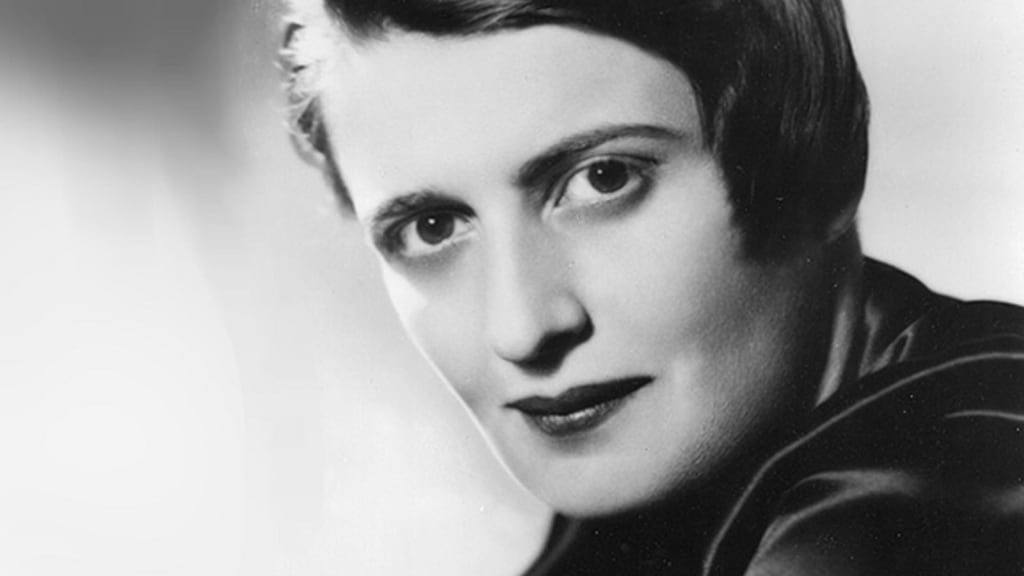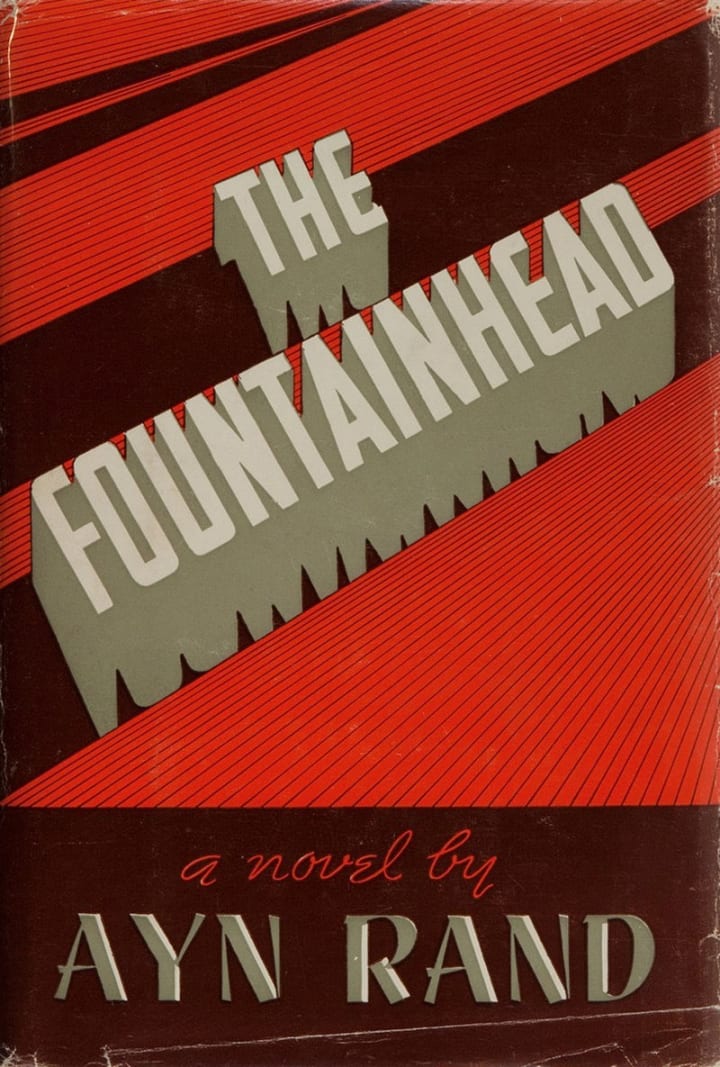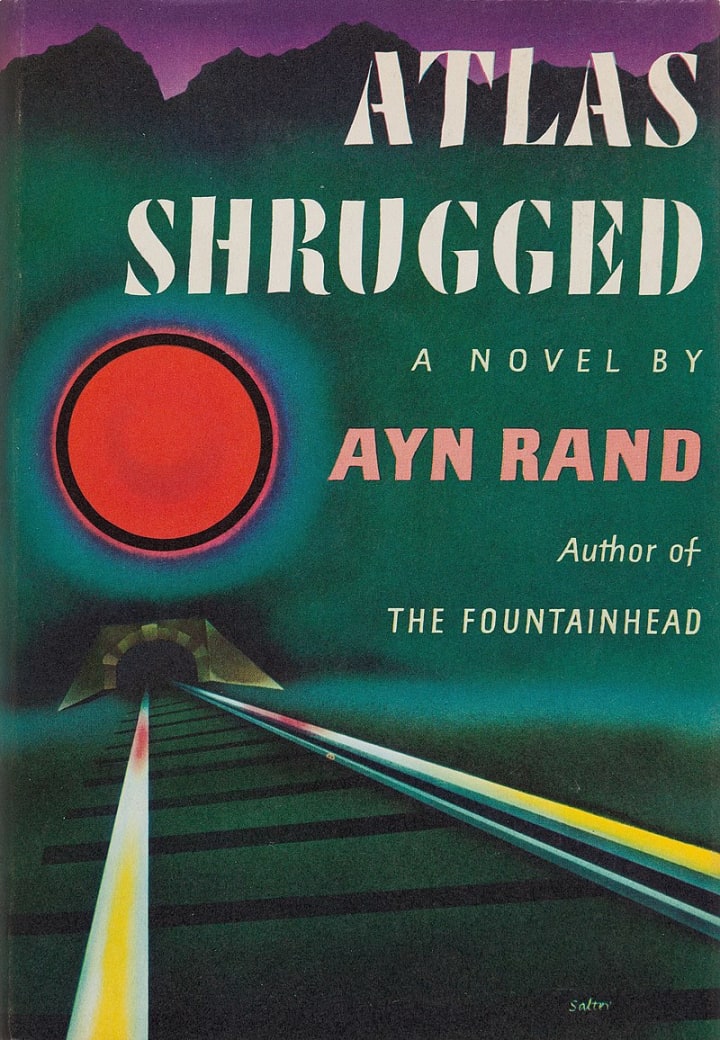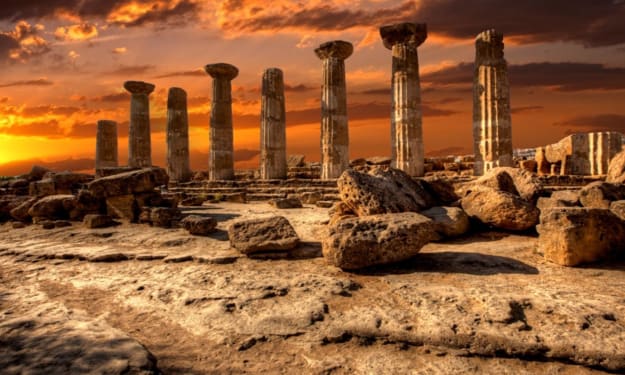In Defense of the Objectivist
A Journey into the Notable Philosophy of Ayn Rand

The date is February 25, 1959. In a studio with famed American journalist, Mike Wallace, stood across from him one Ayn Rand. Born Alisa Zinovyevna Rosenbaum in Russia, she immigrated to the United States following her witnessing of the instability & tumultousness of the Russian Revolution & the rise of the Soviet Union. Over the course of living in America for more than 30 years she developed her skills in writing (mainly novels and screenplays). Such effort was often accomponied by intensive independent research into the philosophical writings of Aristotle; as well as the literary works of Fyodor Dostoevsky, Victor Hugo, Edmond Rostand, and Friedrich Schiller. At the time of this interview before the television cameras & Mr. Wallace, she had become most prominant for her political activism in testifying before the H.U.A.C (House Un-American Activities Commitee) and her publishing of two novels which would cement her as one of the most relevant, yet controversial, philsophers in modern times; The Fountainhead & Atlas Shrugged. During the televised interview, Mike Wallace read aloud to Rand a review of Atlas Shrugged from Newsweek. According to the article, Rand was deliberatley out to destroy almost every edifice in the contemporary American way of life, Judeo-Christian religion, modified & government-regulated capitalism, & rule by the majority will. Furthermore, Wallace went on to say that other reviewers accused her of scorning churches & the concept of God with the mere stroking of the pen onto paper. When asked if such criticisms were accurate. She almost nonchalantly replied "Uhh, yes."


Which leads to the following assertion; that rarely can such a person in the world of modern politics & society can leave such an indelible & simultanously disputable imprint the same way that Ayn Rand has. To this very day, the sales of not only The Fountainhead & Atlas Shrugged, but also 11 other published works, number in the millions on an annual basis. The mere utterance of her name can spark tension-fueled debates amongst those who value selflessness & rectitude first and foremost; especially when putting into context Rand's personal view of how selfishness & conciet can have the potenial to be virtuous elements of the human character. Such an idea can be easily be branded as corrupt, ill-natured, morally backwards, or stright up wrong. However for every person who detests Rand, one can always find another who cherishes her. Particularly, when discovering such people include entrepeneurs Mark Cuban & Jimmy Wales, comic book writers Steve Ditko & Frank Miller, journalists H.L. Mencken, John Stossel & Hunter S. Thompson, as well as performing artists Penn Jillete, Vince Vaughn, Angelina Jolie, & Neil Peart. Nevertheless, with such an exceptional cultural figure, it seems as though only a select few can truly comprehend her ideology of objectivism.

Breaking it down into layman's terms, objectivism is defined as logical egotism. The idea that a human's primary obligation, in this lifetime, is to act for the benefit of their own self and their own esteem. Much to the contrasting positions of other philosophers like Immanuel Kant & David Hume, objectivism holds in the highest respect that reality is real. The world around us has existed for billions of years and remains extant, regardless of how we as it's inhabitants emotionally embrace it or intellectually discern it.
- THE EARTH IS ROUND.
- HUMANS SHARE 99% OF THEIR DNA WITH CHIMPANZEES.
- THE CAPITAL OF DENMARK IS COPENHAGEN.
- THE 46TH U.S. PRESIDENT IS JOE BIDEN.
- PI (𝛑) IS 3.14159265359.
Wether we like them or not, they are factual. Additonally, humanity's methods of discerning such facts lie in the ability to exercise reason. To exercise reason is to use our only source of pure knowledge and our fundamental mechanism of survival for the sake of the individual. It is by no means for the sake of the communal; and it is this focus on the reasonable, yet self-interested, individual which is the core of Rand's school of thought and elaborated by the character of Gail Wynand in The Fountainhead.
In other words, the values, ideas, and beliefs attributed to a single human being are all rooted in that human being's sole power of reasoning. Therefore, the ultimate fidelity which humans bear is the acting in line with their own values.

Moving on to one of the most common objections towards Rand and her objectivist philosophy is that it creates a grim vision of life as a "Zero Sum Game". A vision of life where one's victory (or defeat) is consequently balanced by the victories/defeats of another. This scenario is illustrated almost perfectly in the opera Rise and Fall of the City of Mahagonny. In it, three criminals (Fatty, Trinity, & Leocadia) strike out against the laws of the civilized world and venture out to the frontier to create a "city of pure pleasure" called Mahagonny. It is a city where nobody works & everyone is free to partake in almost any form debauchery they so please. From drinking, to gambling, to fighting, to flesh peddling. You name it, the people of Mahagonny can freely do it, with almost nothing to hold them back.

Not surprisingly, things begin to go downhill. The city's economy suffers deflation due to a slow but sure lack of spending. The criminals which run Mahagonny begin to turn against one another, and set up rigid and contradictory rules; controlling what the people living there can and cannot do. Consequently, these unregulated rules result in the city being torn apart by politically motivated violence on behalf of one Jimmy McIntyre; delibertly meant to call out the "triumvirate" governing the city to see how they have become the very thing they sought to oppose in the first place. As if shit hasn't already hit the fan, it is then discovered that a hurricane is approaching and it will surly wipe Mahagonny off the map. As for Jimmy McIntyre, rather than cowardly running for the hills, he encourages people to stay and do as they please like in times past. His argument being, that the key to happiness is ultimate freedom and the rules made by the higher ups be damned. Yet, it is all for none, as Jimmy is caught and hanged for his crimes. The hurricane comes, but surprisingly leaves the city intact. It is only from the general chaos and warring factions within, that the city is destoryed for good.

The implication of this tragic opera by opponents of objectivism is that the horrifying scenario played out on the stage is what Rand's philosophy manifests into when placed beyond paper and into practice. However it can be argued that the fantastical perceptions seen in Rise & Fall of the City of Mahagonny is a proto-perversion of objectivist ideology; representing more of an anarchist utopia, rather than an objectivist utopia. For you see, objectivism does contain an inherent morality which permits a sensible degree of government regulation; both of which are either completley absent or minimalistically weak in Mahagonny. This again, goes back to the individual acting as the moral agent and having inalienable rights. The violence carried out by the likes of Jimmy McIntrye (as well as the contrdictory laws set up by the criminals running the city) naturally infringe such rights; allowing most objectivists to agree that proper action by a more fitting government must be conducted.
On top of it all, the idea that humankind must not be repressed by "petty and archaic moral compasses" to achieve their unfettered desires is not of objectivist origin. The chracter of Howard Roark in The Fountainhead elaborates on this, when he confesses his belief that a man's moral prerequisite is to do what he sets his mind to (as long as such goals are not dependant on others in order to acheive them). He recognizes no mandate towards the collective except for two; to respect the freedom of the individuals within said collective and to never subjuacte yourself into a society of slaves. It is through Rand's work that she envisioned a "Positive Sum Game" in which people cooperate in mutual self interests, do not violate the natural rights of themselevs or others, and do not need the sacrifices of others in order to advance forward.

However, there is one other Achilles heel that is most commonly exploited by critics of Rand & objectivism. The notions that A) objectivism depends on the existance of free will, and B) that humankind is completley composed of reasoning & rational participants capable of making choices in every circumstance they are confronted with & involved in.
The topic of free will itself is (in all honesty) one which would be too cumbersome to tackle in this Vocal article. Though, are a plethora of notable & historically significant people (from Voltaire, to Thomas Jefferson, to Mark Twain, to Albert Einstein) who have argued, rather ardently, that free will may be either nothing more than an illusion or that it simply doesnt exist. Given the potential circumstance that the evidence against free will outweighs the evidence in favor of it, objectivism and it's philisophical backbone would crack & colapse no different than Mahagonny. Yet, let us temporalily set aside this matter and analyze what this philosphy means in practice. In particular, in the practice of politics.
Politically speaking, politics are a vital element in Rand's philosophy. In particular the system of laissez faire capitalism, where there is a total separation of the government and the market, in a manner which mirrors the separation of the government and organized religion. The only purpose government has is to protect the natural rights of it's people and nothing else beyond that. For when individual agents of the free market operate in mutual fairness will seek to benefit themselves. Consequently, their actions benefit the entire system as a whole.
Going back to the topic of free will, let us engage in a thought experiment (albeit, with an extreme scenario). A gentleman named Joe is walking down the street on his way to work, drinking his regular cup of coffee and listening to his favorite podcast on his phone. Out of the corner of his eye, he sees a child drowning in the river. What should Joe do? Moreover, what is Joe morally obligated to do? It certainly wouldn't be surprising if such questions were asked upon a large group of people, most of the people in that group would more than likley answer that Joe would be instincually compulsed to save the child. Such an answer would even be given by such philosophers as Immanuel Kant, or even Thomas Aquinas; arguing that is is morally right to rescue the child and morally wrong to do absolutley nothing. Rand, however, has an alternate outlook. In objectivism, there is certainly nothing wrong (at all) with helping other people. Whether it be from participating in charities, doing random acts of kindness, or exhanging holiday gifts. They are all fine to do as long as they are in line with your individual values. The true exception lies in the idea that a person is in any way obligated to do any of those things; stemming from the idea that the individual is a moral unit. In objectivism there is no inherant debt between people. Which, in turn, extends to the scenario of Joe and the drowning child. Joe has a choice between rescuing the child or not. He has this choice because there may be numerous other factors which can affect his ability to rescue the child (What if the child is too far away & Joe can't make it in time? What if Joe can't swim and doesnt want to risk drowning alongside the child as well? What if he decides to call 911 but they don't make it to the scene in time?).

In closing, the philosophy of objectivism is certainly an intricate and complex one. Many people find it better off to reject it, due to how it's concepts of selfishness to be virtuous and that man isn't ethically mandated to act in service to his fellow man. For they are very bitter pills to swallow. Yet, there is one last idea in Ayn Rand's philosophy that (arguably) anyone can fall in with. Upholding to the highest degree the value of reason.
In such modern times as these, we as humans live in a world dominated by emotion. A world where people are judged not by the merits of their efforts nor the content of their character, but by the means which we affect each others feelings. Arguably, the more we as a globalized society begin to embrace reason as the highest ideal of all, the world becoming a better place can very well become a reality and not just another quixotic expression.

About the Creator
Jacob Herr
Born & raised in the American heartland, Jacob Herr graduated from Butler University with a dual degree in theatre & history. He is a rough, tumble, and humble artist, known to write about a little bit of everything.






Comments
There are no comments for this story
Be the first to respond and start the conversation.